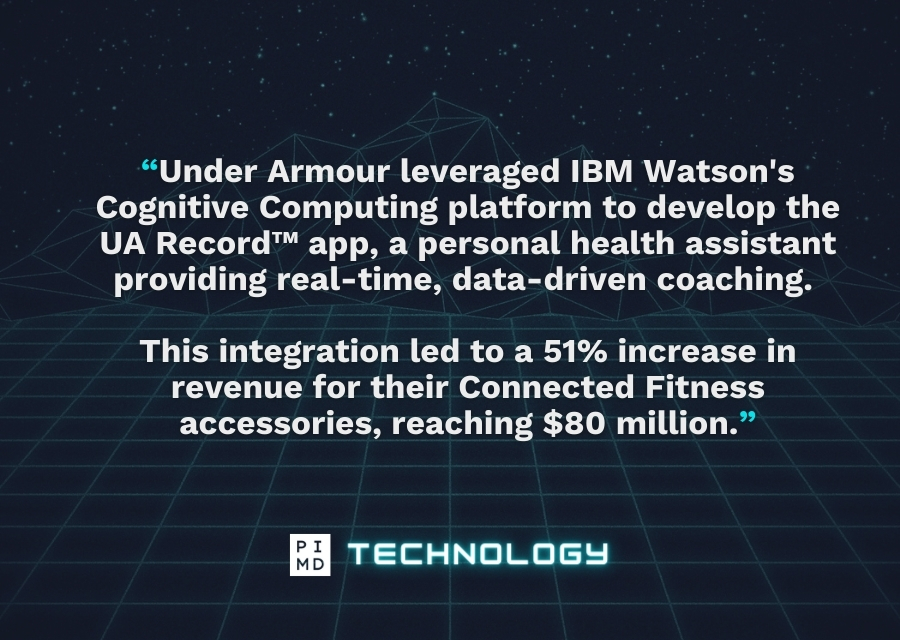Drowning in Data, Starving for Insights? AI Analytics to the Rescue!
Struggling to keep up with the ever-growing volume of customer data? Feeling overwhelmed by analyzing spreadsheets and reports yet still missing crucial insights? That’s where AI comes in, offering a game-changing solution for businesses of all sizes.
Imagine predicting customer churn before they leave, optimizing your marketing campaigns across multiple channels with laser precision, or personalizing product recommendations that drive sales through the roof. AI-powered business analytics makes all this possible and more!
Table of Contents
AI Techniques for Advanced Business Analytics
Have you come to terms that Artificial intelligence (AI) is no longer just science fiction? In fact, in the world of business, AI is rapidly transforming how companies analyze data and make decisions.
By mimicking human cognitive functions, AI provides significant advantages over traditional analytics methods. Such as:
Automation:
AI automates repetitive tasks like data collection and cleaning, freeing up valuable human resources for higher-level analysis and strategic thinking.
Speed and Scalability:
AI can process massive datasets in a fraction of the time it takes humans, enabling businesses to gain insights from real-time data and make timely decisions based on the latest information.
Advanced Analytics:
Techniques like machine learning and natural language processing uncover hidden patterns and trends in data that would be impossible to detect manually. This leads to deeper insights and more informed decision-making, boosting areas like customer churn prediction, targeted marketing campaigns, and efficient resource allocation.
For example, Under Armour:
The sports apparel company leveraged IBM Watson’s Cognitive Computing platform to develop the UA Record™ app, a personal health assistant providing real-time, data-driven coaching. This integration led to a 51% increase in revenue for their Connected Fitness accessories, reaching $80 million.

Interested in AI tools for personal or business use? SUBSCRIBE AND TUNE IN TO OUR PODCAST:
#169 Physician’s Tools of the Future: Harnessing the Power of AI, ft. Dr. Peter Kim
Benefits of AI in Business Analytics
Integrating AI into your business analytics strategy can deliver tangible results that impact your bottom line. Here are just a few key benefits:
Boost Sales and Reduce Costs:
By analyzing vast amounts of historical data and real-time trends, AI can improve sales forecasting accuracy. In fact, 52% of sales professionals use AI regularly. This allows you to optimize inventory management, reduce stockouts, and avoid unnecessary costs.
For example, HubSpot’s Predictive Lead Scoring Software uses machine learning to identify the most lucrative leads by scanning thousands of data points, becoming smarter, and optimizing its scoring system over time.
Supercharge Efficiency and Productivity:
AI automates repetitive tasks like data cleaning and analysis, freeing up your team’s valuable time. Analysts can focus on strategic initiatives like identifying new market opportunities or developing innovative customer segments.
For example, AI can be utilized for anomaly detection, identifying unusual patterns in data that may indicate errors, system glitches, or fraudulent activities. This capability is particularly useful in retail companies, where AI can flag transactions with unusually low prices for further investigation, ensuring data integrity and preventing financial losses.
Deeper Customer Insights, Personalized Engagement:
AI analyzes customer data from multiple sources, uncovering hidden preferences and predicting buying behavior. This empowers you to create personalized marketing campaigns that resonate with individual customers.
A great example is Netflix, which has been using data analysis and machine learning to offer personalized content recommendations to its users. This AI-powered recommendation system considers a user’s viewing history, search history, and ratings, as well as content-related data like genre and director. Netflix’s system is responsible for 80% of the content watched on the platform and has saved the company over $1 billion in customer retention costs. Furthermore, Netflix uses AI to optimize its content creation process, tailoring its productions and marketing strategies based on viewer data

Don’t miss the Leverage & Growth Summit this winter, a unique event tailored for physicians exploring entrepreneurial and growth opportunities beyond traditional clinical roles. It’s an enriching platform offering inspiring keynotes from successful physician entrepreneurs, interactive workshops on various fields like digital health and investment, invaluable networking with like-minded professionals, and insightful panel discussions on healthcare trends.
This summit isn’t just a conference; it’s a movement towards expanding your professional horizons, empowering your entrepreneurial spirit, and connecting with pioneers reshaping healthcare. Mark your calendars for a transformative experience that promises to redefine the intersection of medicine and entrepreneurship.
And don’t forget! We have a collection of free AI Tools that your business can use. Take the time to explore and don’t miss out!
Case Examples: AI-Powered Business Analytics for Entrepreneurs
Integrating AI into your business analytics processes requires a strategic approach. Here are some hypothetical examples of issues your business may face and how AI can assist in resolving them.
Case 1: Boosting E-commerce Sales with Personalized Recommendations
Challenge: A small fashion e-commerce store struggled to convert website visitors into buyers due to generic product suggestions.
Solution: They implemented an AI-powered recommendation engine that analyzes browsing history and purchase patterns.
…
AI has become an indispensable asset in business analytics, offering a competitive edge in the data-driven era. By understanding its benefits, challenges, and implementation steps, you can unlock valuable insights, make informed decisions, and propel your business forward.
IF YOU WANT MORE CONTENT LIKE THIS, MAKE SURE YOU SUBSCRIBE TO OUR NEWSLETTER TO GET UPDATES ON THE LATEST TRENDS FOR AI, TECH, AND SO MUCH MORE.
Peter Kim, MD is the founder of Passive Income MD, the creator of Passive Real Estate Academy, and offers weekly education through his Monday podcast, the Passive Income MD Podcast. Join our community at the Passive Income Doc Facebook Group.










